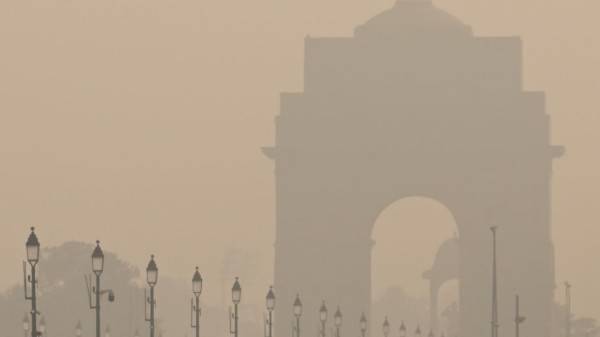

By signing in or creating an account, you agree with Associated Broadcasting Company's Terms & Conditions and Privacy Policy.


By signing in or creating an account, you agree with Associated Broadcasting Company's Terms & Conditions and Privacy Policy.

New Delhi: According to a new report by Reuters, the Indian government is planning to launch a nationwide climate-linked insurance programme aimed at simplifying the payout process after extreme weather events such as heatwaves and floods. As the consequences of climate change are becoming more and more stark and real-time, the need for insurances surrounding climate change have become a pertinent and much needed initiative.
The expected scheme, Reuters reports, would adopt a parametric insurance model, where policyholders receive a pre-determined payout when specific weather thresholds such as rainfall, temperature or windspeed are breached.
If enacted, the plan will see India become one of the first major economies to bring about such a plan. This would be pivotal for a country which already is vulnerable to extreme climate events. The move would also help the government, which now uses funds earmarked for disasters to help states with adverse climate events. "We've seen the frequency and severity of adverse climate events go up, and based on that, this discussion with the government also started," Ramaswamy Narayanan, chairperson of state-run reinsurer GIC Re, told Reuters.
Under such a model, payouts can be made very quickly. Unlike say a traditional insurance model where reimbursements can take a long time. In climate related incidents, this could be of huge help. Such insurances can also offer coverage in areas not seen in traditional insurance.
The National Disaster Management Authority, the finance ministry and GIC Re and other top insurers are exploring coverage options and funding mechanisms, the report added. Thus there has been no official announcement but the report looks optimistic at the prospects of such a programme coming up.
Climate insurance, a relatively new concept, pertains to insurance schemes designed to protect various entities (both personal and professional) from financial losses incurred due to extreme weather events caused by climate change.
Such a plan is important for India, a country with a diverse climate profile, which according to the Germanwatch Global Climate Risk Index 2025 ranks sixth globally in climate vulnerability.
Tracked around 1993 and 2022, the report says that India experienced over 400 extreme weather events, resulting in at least 80,000 deaths and economic losses of around $180 billion. An insurance plan related to climate change is thus being seen as important.
States like Punjab and Assam, which are agriculturally important for the country, have recently been salvaged by extreme climate events in the form of floods. The Hilly States of Uttarakhand and Himachal Pradesh too suffer from multiple environmental crises every year round.
There are some such cases of insurance at state and local levels, as the Reuters report says. In 2024, a group of 50,000 self-employed women in Rajasthan, Gujarat and Maharashtra states received $5 payouts when temperatures exceeded 40°C between May 18 and May 25. Similarly in Nagaland, which gained India's first disaster risk coverage from SBI General Insurance in 2024, received its first payout of $119,000 in May after excessive rainfall earlier in the year.
The current plan reportedly under consideration looks to bring about such schemes at a federal level. Something that other countries have also looked at. According to a 2020 study by McKinsey, the value at stake from climate-induced risks could double to more than 4 per cent of global GDP by 2050. Fiji became the first Pacific Island nation to adopt such a sovereign scheme in 2023, providing coverage against tropical cyclones. Similar financial avenues to mitigate climate disasters are also expected to feature prominently at the upcoming COP30 summit in Brazil.












